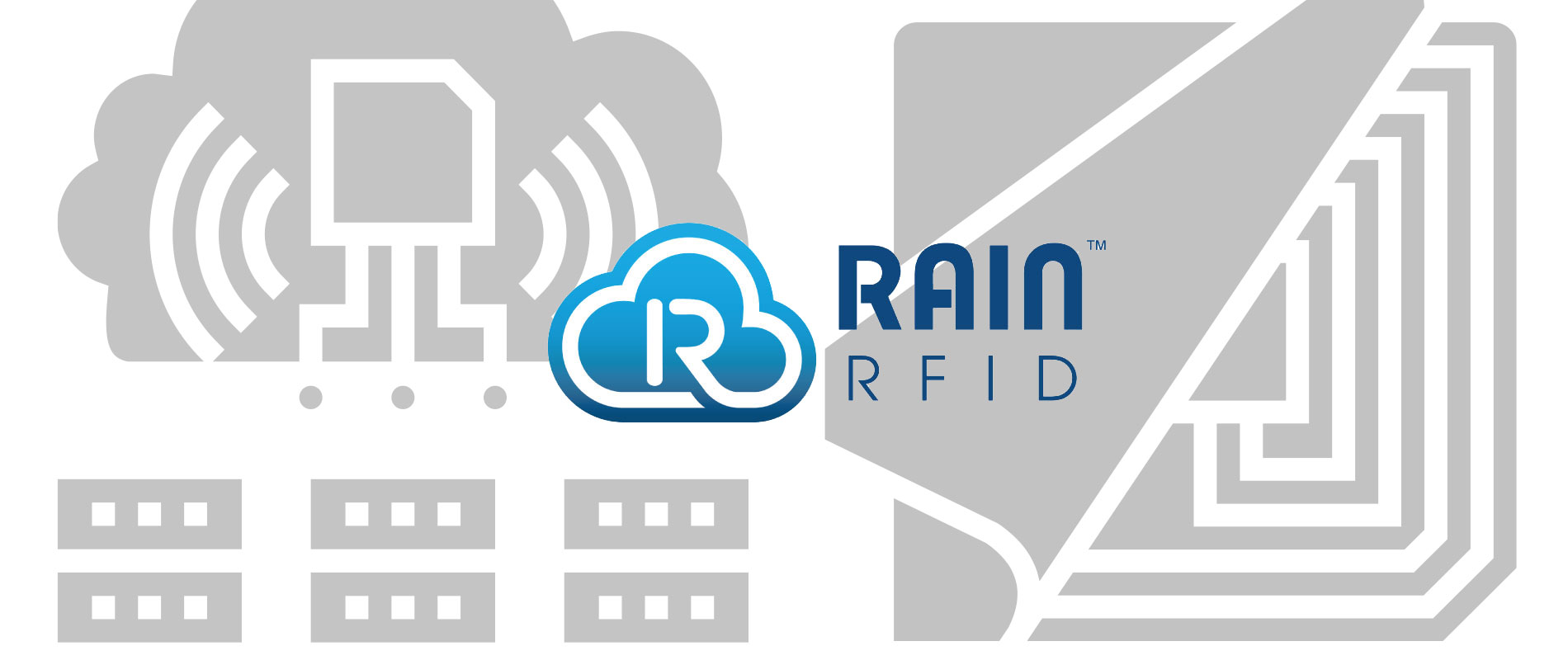Companies across the globe are starting to rely on the Internet of Things (IoT) and AI, to address various critical issues like the pandemic. These solutions have allowed businesses to accurately capture and ultimately use their own data to drive efficiencies and protect increasingly fragile bottom lines.
One technology that’s playing a key role in enabling these IoT solutions is the RAIN RFID technology. By using RAIN RFID to capture item data and then feed the information into AI systems, businesses can identify inefficiencies within the supply chain and make informed decisions.
RAIN RFID Defined
Radio Frequency IDentification (RFID) is a form of wireless communication that uses radio waves to identify and find objects. RFID is a generic term that encompasses different frequencies and standards, including both NFC and RAIN—two technologies supported by industry alliances. RAIN RFID is a passive, battery-free wireless technology system that connects billions of everyday items to the Internet. These connections provide rich, real-time data and insight, enabling businesses and consumers to identify, locate, authenticate and engage with each item.
RAIN RFID is a critical IoT technology that allows an easier data collection with itemized data. By applying small, battery-free tags to items, organizations can identify, locate, and authenticate each of those items. This technology is capable of scanning up to thousands of items simultaneously with a variety of devices, including hand-held, fixed, and wearable readers.
RAIN RFID solutions improve the operational capabilities of an organization by ensuring they have exactly the right items, in the right quantities, at the right locations, at the right time. RAIN RFID solutions can be key in minimizing disruptions in retail and manufacturing supply chains. This is achieved by increasing inventory and asset visibility and improving the management and flow of goods.
How RAIN RFID helps
RAIN RFID can tell you what an object is, where it is, and even its condition. With this information, businesses around the world are able to increase sales, drive operational efficiencies, and improve customer experience. Here are some key ways RAIN RFID can help:
- Automate shipment verification by scanning tags automatically
- Automate inventory and asset-tracking in healthcare, manufacturing, retail, and business sectors. Supply chain leaders gain real-time visibility into an item’s identity, usage, and location.
- Improve order accuracy by automating pallet build verification
- Identify the source of products, enabling intelligent recall of defective or dangerous items, such as tainted foods, defective toys, and expired or compromised medication
- Improve shopping experiences for consumers, with fewer out-of-stock items and easier returns
- Provide visibility into the supply chain, yielding a more efficient distribution channel and reduced business costs
- Decrease business revenue lost to theft or inaccurate accounting of goods
Value of RAIN RFID in Analytics
Let’s face it. Analytics is becoming key to success in businesses. RAIN RFID can making AI driven analytics more effective. It provides item identifiers for tracking and locating billions of items from clothing, food, pharmaceuticals, tools, packages, pallets, and more.
The fact that RAIN RFID works without line-of-sight, providing visibility into places and processes that weren’t previously available adds a lot of value to analytics. The data provided by a RAIN RFID system can give AI-powered solutions the ability to see individual items throughout the supply chain, understand how the entire supply chain works, and identify areas for improvement.
Over the past several years, Delta Airlines transformed its customer experience by investing in technology via the Fly Delta mobile app. The technology includes real-time RAIN RFID bag tracking and automatic check-in. Delta is now leveraging this set of investments in their implementation of an AI-driven platform that analyzes millions of operational data points, including luggage movement, aircraft positions, flight crew restrictions, and airport conditions. This system simulates operating challenges and creates hypothetical scenarios that help Delta’s team make critical operational decisions that improve their overall customer experience.
The future
Companies are dramatically moving toward digital transformation, as the pandemic clearly showed the need for online presence. Internet of Things (IoT) is a key underlying technology to support digital transformation. And, RAIN RFID and AI are key technologies that work hand in hand with IoT to make the processes more efficient and productive.




